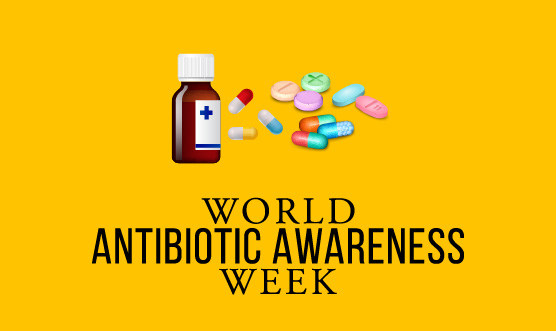-
REAGENT SERVICES
Hot!
-
Most Popular Services
-
Molecular Biology
-
Recombinant Antibody/Protein
-
Reagent Antibody
-
CRISPR Gene Editing
-
DNA Mutant Library
-
IVT RNA and LNP Formulations
-
Oligo Synthesis
-
Peptides
-
Cell Engineering
-
- Gene Synthesis FLASH Gene
- GenBrick™ Up to 200kb
- Gene Fragments Up to 3kb now
- Plasmid DNA Preparation Upgraded
- Cloning and Subcloning
- ORF cDNA Clones
- mRNA Plasmid Solutions New!
- Cell free mRNA Template New!
- AAV Plasmid Solutions New!
- Mutagenesis
- GenCircle™ Double-Stranded DNA New!
- GenSmart™ Online Tools
-
-
PRODUCTS
-
Most Popular Reagents
-
 Instruments
Instruments
-
Antibodies
-
ELISA Kits
-
Protein Electrophoresis and Blotting
-
Protein and Antibody Purification
-
Recombinant Proteins
-
Molecular Biology
-
Stable Cell Lines
-
Cell Isolation and Activation
-
 IVD Raw Materials
IVD Raw Materials
-
 Therapy Applications
Therapy Applications
-
Resources
-
- All Instruments
- Automated Protein and Antibody Purification SystemNew!
- Automated Plasmid MaxiprepHot!
- Automated Plasmid/Protein/Antibody Mini-scale Purification
- eBlot™ Protein Transfer System
- eStain™ Protein Staining System
- eZwest™ Lite Automated Western Blotting Device
- CytoSinct™ 1000 Cell Isolation Instrument
-
- Pharmacokinetics and Immunogenicity ELISA Kits
- Viral Titration QC ELISA Kits
- -- Lentivirus Titer p24 ELISA KitHot!
- -- MuLV Titer p30 ELISA KitNew!
- -- AAV2 and AAVX Titer Capsid ELISA Kits
- Residual Detection ELISA Kits
- -- T7 RNA Polymerase ELISA KitNew!
- -- BSA ELISA Kit, 2G
- -- Cas9 ELISA KitHot!
- -- Protein A ELISA KitHot!
- -- His tagged protein detection & purification
- dsRNA ELISA Kit
- Endonuclease ELISA Kit
- COVID-19 Detection cPass™ Technology Kits
-
- Automated Maxi-Plasmid PurificationHot!
- Automated Mini-Plasmid PurificationNew!
- PCR Reagents
- S.marcescens Nuclease Benz-Neburase™
- DNA Assembly GenBuilder™
- Cas9 / Cas12a / Cas13a Nucleases
- Base and Prime Editing Nucleases
- GMP Cas9 Nucleases
- CRISPR sgRNA Synthesis
- HDR Knock-in Template
- CRISPR Gene Editing Kits and Antibodies
-
![AmMag™ Quatro Automated Plasmid Purification]() AmMag™ Quatro automated plasmid purification
AmMag™ Quatro automated plasmid purification
-
![Anti-Camelid VHH]() MonoRab™ Anti-VHH Antibodies
MonoRab™ Anti-VHH Antibodies
-
![ELISA Kits]() ELISA Kits
ELISA Kits
-
![Precast Gels]() SurePAGE™ Precast Gels
SurePAGE™ Precast Gels
-
![Quatro ProAb Automated Protein and Antibody Purification System]() AmMag™ Quatro ProAb Automated Protein and Antibody Purification System
AmMag™ Quatro ProAb Automated Protein and Antibody Purification System
-
![Target Proteins]() Target Proteins
Target Proteins
-
![AmMag™ Quatro Automated Plasmid Purification]() AmMag™ Quatro automated plasmid purification
AmMag™ Quatro automated plasmid purification
-
![Stable Cell Lines]() Stable Cell Lines
Stable Cell Lines
-
![Cell Isolation and Activation]() Cell Isolation and Activation
Cell Isolation and Activation
-
 IVD Raw Materials
IVD Raw Materials
-
![Quick
Order]() Quick Order
Quick Order
-
![Quick
Order]() Quick Order
Quick Order
- APPLICATIONS
- RESOURCES
- ABOUT US
- SIGN IN My Account SIGN OUT
- REGISTER
News & Blogs » CRISPR News » Overcoming Antibiotic Resistance with CRISPR
Overcoming Antibiotic Resistance with CRISPR
Our main therapeutic line of defense against invading pathogenic bacteria has been progressively weakened by antibiotic resistance. Based on reports by the CDC and the WHO, bacterial antibiotic resistance is a major threat to human health. The CDC’s 2019 AR Threats Report showed that in the USA microbial antibiotic resistance is associated with over 2.8 million infections yearly, resulting in over 35,000 deaths. Similarly, antibacterial resistance is associated with ~25,000 deaths per year in Europe, based on the WHO report on "Antimicrobial Resistance: Global Report on Surveillance" of 2014.
Antibiotic resistance has been unintentionally promoted through decades of antibiotic misuse and overuse. Under the driving pressure exerted by antibiotics, bacteria have evolved multiple strategies for resistance, while treatment alternatives have dwindled. This is because in contrast to the rapidly evolving resistance mechanisms, pipelines for the development of new antibiotics have struggled in keeping with the pace through discovery efforts. Additionally, reduced financial returns have discouraged further pursuit of alternative lead drugs by large pharma.
The State of Antimicrobial Discovery
At the end of 2019, preclinical projects aimed at developing new antibacterial drugs were being carried out primarily by small institutions and companies, tallying a total of over 300 companies engaged in over 400 projects. This preclinical pipeline included projects for the development of antibiotics to new targets in predominantly Gram-negative bacteria, antibodies and vaccines to bacterial pathogens, as well as bacteriophages and modulators of the gut microbiome (Theuretzbacher et. al. 2019).

Currently, the majority of preclinical projects continue to focus on the development of new antibiotic drugs, however it’s estimated that on average only 20% of antibiotic candidates successfully secure FDA approval. For example, of 41 antibiotic candidates at different phases of development by the end of 2019, only 4 were approved by April, 2020 (Pew Research Center). Therefore, alternative therapeutic modalities are needed to overcome these odds.
CRISPR/CAS Strategies Targeting Bacterial Pathogens
New approaches are being developed to leverage the strengths of the "Clustered Regularly Interspaced Short Palindromic Repeats" CRISPR/Cas system to modify bacterial gene targets. The CRISPR/Cas system has naturally evolved in bacteria as a mechanism of immunity, which provides protection from invading bacteriophages and foreign genetic material (Kick et. al. 2017).
These new antibacterial strategies harness the specificity and unique activities of the CRISPR/Cas system to target bacterial essential chromosomal, virulence or resistance genes to reduce bacterial viability, pathogenicity or render bacteria sensitive to antibiotic treatment (Aslam et. al. 2020, Gholizadeh et. al. 2020). Two major benefits of this approach include the potential to exclusively affect a targeted bacterial pathogen, while preserving the normal microbiome, and the ability to target multiple genes for modification, given that bacterial resistance is often encoded by multiple genes. However, major hurdles remain regarding the implementation of CRISPR/Cas based antimicrobial strategies including optimizing delivery systems (e.g., CRISPR-nanocomplexes, phage capsid packaged plasmids, and conjugative plasmids) as well as elucidating strategies for the identification and targeting of genetic elements underscoring resistance within complex bacterial populations (Kang et. al. 2017, Pursey et al. 2018).
Startups Developing CRISPR Strategies to Tackle Antimicrobial Resistance
Locus Biosciences is a clinical-stage biotechnology company based in Morrisville, North Carolina, USA, aiming at developing CRISPR based antimicrobial strategies. Locus has developed the CRISPR-Phage "crPhage™" platform, which relies on the unique helicase-nuclease activity of Cas3, a Type I CRISPR/Cas, in combination with bacteriophage delivery. Once targeted to specific DNA sequences, a process that depends upon interaction with the ribonucleotide complex Cascade, Cas3 nuclease nicks single stranded "unwound" chromosomal DNA. Because Cas3’s nuclease activity supports extensive DNA degradation, it leads to bacterial killing. A Phase 1 clinical trial is currently underway for the use of crPhage™, cocktails of CRISPR/Cas3 engineered bacteriophage, for the treatment of urinary tract infections involving E. coli and K. pneumonia. These two pathogens have a high rate of antibiotic resistance and lead to a significant number of recurrent infections. As of October 2020, Locus Biosciences has established a contract with the Biomedical Advanced Research and Development Authority (BARDA) for the support of Phase 2 and 3 clinical trials and the development of crPhage™ for the treatment of recurrent urinary tract infections caused by E. coli.
Nemesis Biosciences is a biopharmaceutical company based in Cambridge, UK, which develops CRISPR/Cas constructs targeting antibiotic resistance genes (e.g., beta-lactamases). Nemesis main offering, Symbiotics©, consists of multiplexed programmable RNA-guided nucleases targeting antibiotic resistance genes. Symbiotics© are delivered via bacteriophages or through the use of commensal bacteria. Recently, Nemesis announced a collaboration with Shionogi Co. Ltd for continued development of its Transmid© technology aimed at the treatment of respiratory infections involving Pseudomonas aeruginosa.
Overall, ongoing projects in these startups exemplify the broad reach of CRISPR tools. From directly killing resistant bacteria to targeting antibiotic-resistance genes, these CRISPR based applications provide innovative solutions to what has become a worldwide threat.
Reference
- Aslam, B. et al. CRISPR-Cas system: A potential alternative tool to cope antibiotic resistance. Antimicrobial Resistance and Infection Control (2020) doi:10.1186/s13756-020-00795-6.
- Gholizadeh, P. et al. How CRISPR-Cas system could be used to combat antimicrobial resistance. Infection and Drug Resistance (2020) doi:10.2147/IDR.S247271.
- Kang, Y. K. et al. Nonviral Genome Editing Based on a Polymer-Derivatized CRISPR Nanocomplex for Targeting Bacterial Pathogens and Antibiotic Resistance. Bioconjug. Chem. (2017) doi:10.1021/acs.bioconjchem.6b00676.
- Kick, L., Kirchner, M. Schneider, S. CRISPR-Cas9: From a bacterial immune system to genome-edited human cells in clinical trials. Bioengineered (2017) doi:10.1080/21655979.2017.1299834.
- Pursey, E., Sünderhauf, D., Gaze, W. H., Westra, E. R. van Houte, S. CRISPR-Cas antimicrobials: Challenges and future prospects. PLoS Pathog. (2018) doi:10.1371/journal.ppat.1006990.
- Theuretzbacher, U., Outterson, K., Engel, A. Karlén, A. The global preclinical antibacterial pipeline. Nature Reviews Microbiology (2020) doi:10.1038/s41579-019-0288-0.
Subscribe to Receive Updates
& Promotions From GenScript* We'll never share your email address with a third-party.
Latest News & Blogs
Find More CRISPR News
CRISPR Screening to Optimize CAR Therapies | GenScript
Jul 08, 2025

Engineered NK cells, off-the-shelf solution | GenScript
Jun 17, 2025

Multiplex Editing T Cells with BE and Cas12 | GenScript
May 28, 2025

Theory to action: Applying CRISPR in Research
Aug 16, 2023

Evolving in vivo Gene and Editing-Cargo Delivery Strategies | GenScript
Jul 21, 2023

Enabling Non-Viral T Cell Engineering with ssDNA HDR Templates
Nov 08, 2022

-






































